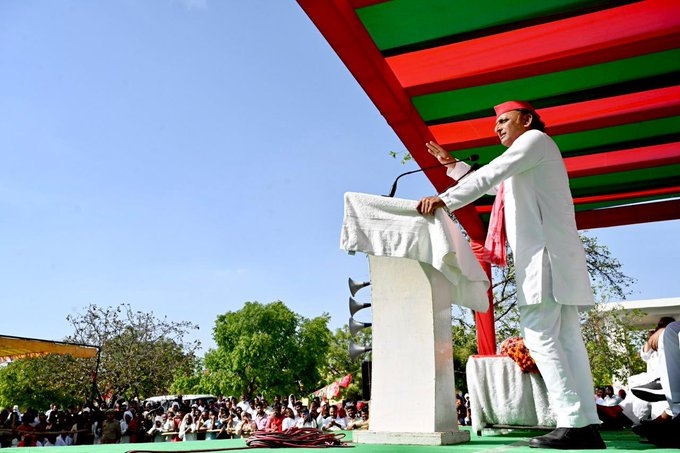_107928_730x419-m.jpg)
When I think of this Ram Swarup, I am reminded of the story of ‘Kalu Bhangi’ written by Krishan Chander, one of the most eminent progressive short story writers produced by the subcontinent in the last century.
What can I write about Ram Swarup except for the fact that he was a mere sanitation worker in the factory premises where I grew up. True, he was the most sought-after by those residing in the factory quarters because he worked with sincerity and regularity besides being polite and courteous to the housewives calling them ‘bibiji’.
He went along the damp and dirty drains on the posteriors of the quarters to enter the old styled washrooms and clean them up with phenyl, acid or bleaching powder, whatever was made available to him.
As a child, I used to wonder why I had never seen him entering a household from the front. His “limit” ended at the point where he rang the door bell or knocked on the main doors to collect his paltry allowance that came over and above the pittance that the factory management paid him. At times he was seen requesting the women to give their ration cards so that he may avail some benefits not taken by them from the public distribution system outlet.
He had a wife named Lakshmi, the name I have found very ironical ever since I cam to terms with the phenomena of caste in society. How could Lakshmi, the goddess of wealth, live in abject poverty? I had seen their house once on the fringe of a beautiful village that had numerous plum, apricot, peach and pear trees. But this hovel stood next to the outlet of dirt and squalor of the village. As a child I had thought why these people could not build their house in a beautiful surrounding like the other villagers. That is all I know about their family. They did not have off-springs as far as I know.
Lakshmi was a jolly woman who was employed as a house help in just one house. Today I recognise why her livelihood ended at just one household and that too at the house of a non-caste Nepali family in the area. As I travel back almost four decades, I just remember that her employers were happy with her work and the best part was that she sang very well. I used to go to the neighbouring house just to hear this woman sing. She was rendered unemployed very soon, never to be seen in the area again.
But Ram Swarup continued to toil endlessly with an unending hope that often bordered on conviction that he would become a permanent employee of the factory very soon.
The factory had a pretty bizarre custom of organising a blood donation camp every year on the occasion of the birthday of the managing director in Delhi every year. I call it “bizarre” because employees were lured or forcibly herded to donate blood every year as if they were already not giving their blood and sweat to the organisation. Come summers and there used to be a commotion among the employees, both white collar and blue collar ones on how to avoid going to the blood donation camp that was no less than going to Guillotine. Some opted for availing medical certificates while others opted for availing leave or taking the sycophant route.
But what could poor Ram Swarup, a daily wage casual sanitation worker, do? Despite his sincere execution of job, he was given a break in employment every few months so that he may not claim regular employment from the company. For him, this blood donation meant pushing his case for regular employment a bit further.
He did not need to be coaxed or persuaded for the annual Delhi trip that ensured his boarding and lodging in lieu of his blood, no matter that a single look at his face and dark complexion would convince anyone that he was not in robust health.
Yes, he donated his blood year after year without any complaint for more than one and a half decades. But he did not achieve his goal of a permanent job. Every year people would joke with him on his endless wait and he would get back saying that he would get that elusive permanent job the next year.
Then all of a sudden, Ram Swarup vanished. Some other sanitation worker started attending to the needs of the households. Nobody would have missed Ram Swarup had there been no comparison between the jobs executed by him and the others.
It was learnt that he not only left the temporary job at the factory but also the town with his wife, never to be seen again. What came of him remains unknown. But whenever there is a mention of him, the sad and sordid tale of his donating blood for that little paying but elusive job does come up and several more such examples are given.
Much later in life when I reported and came across instances of young sanitation workers dying in the manholes of Ahmedabad after inhaling poisonous gases, I was often reminded of Ram Swarup. These young men too get paltry payments by the contractors in the only hope that one fine day they would be enrolled as regular employees of the local civic body.
I had once seen Ram Swarup carrying a calendar with the picture of Dr Bhim Rao Ambedkar. He had asked me, a small school-child, whether I knew who this man in a blue suit was. All I could tell him at that age was that Ambedkar was the father of the Indian Constitution, an all powerful document that made us citizens the most powerful in our democracy. This was the time when there was no cable television and another Dalit icon Kanshi Ram was emerging on the scene.
Today, I can gather that perhaps Ram Swarup knew very little about Ambedkar. I am sure that nobody in his family, even the generation before him, had availed any reservation benefits. The same is true for all those youngsters who have been dying in the man holes of this country. These youngsters might be aware of what Ambedkar stood for but continue to be denied their rights – social and economic.
It was just last week that my house help in Chandigarh told me how she is arranging for Rs 40,000 so that her son gets enrolled as an outsourced sanitation worker. Just a couple of days back, the old man sweeping the road outside my house came requesting if I could find any job for his educated son, a job of an office boy or a sweeper.
Just about a ten days back I could see the confusion on the faces of several people from the Dalit communities as I went around the city after the 2 April Bandh called against the 'dilution' of Scheduled Castes Scheduled Tribes (Prevention of Atrocities) Act. Many did not know what it was all about. A number of them thought it was in response to something said against Ambedkar. Still others thought that there was a move to snatch their reservation rights which would further deprive them.
Even as attempts are being made to target Ambedkar, destroy his statues, paint him saffron, add 'Ramji' to his name, one thing is for sure that he remains as relevant as ever. He cannot be belittled. People like Ram Swarup and crores of others are yet to realise what Ambedkar means for them and how they can take baby-steps on the path that he showed.








![BJP's Kapil Mishra recreates Shankar Mahadevan’s ‘Breathless’ song to highlight Delhi pollution [WATCH] BJP's Kapil Mishra recreates Shankar Mahadevan’s ‘Breathless’ song to highlight Delhi pollution [WATCH]](http://images.catchnews.com/upload/2022/11/03/kapil-mishra_240884_300x172.png)

![Anupam Kher shares pictures of his toned body on 67th birthday [MUST SEE] Anupam Kher shares pictures of his toned body on 67th birthday [MUST SEE]](http://images.catchnews.com/upload/2022/03/07/Anupam_kher_231145_300x172.jpg)






